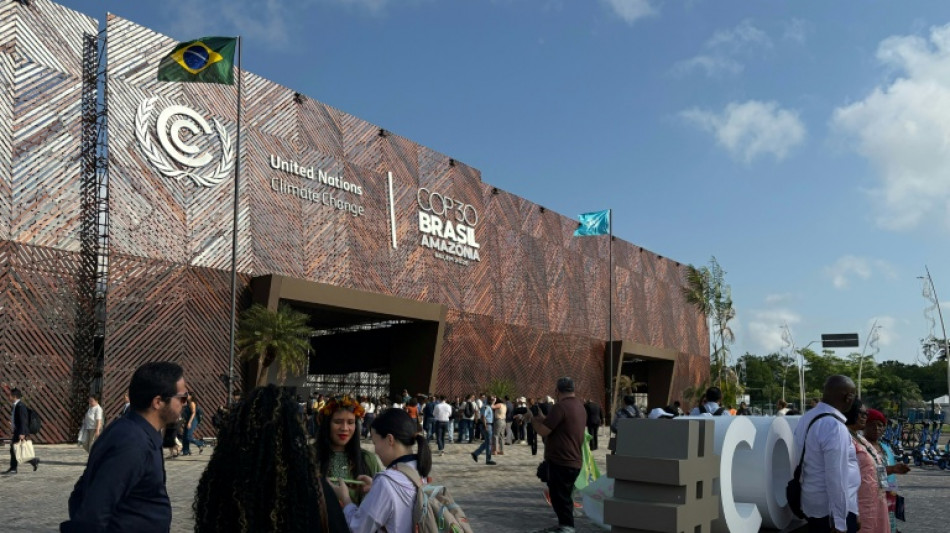
-
 Japan PM's tax giveaway roils markets and worries voters
Japan PM's tax giveaway roils markets and worries voters
-
Amid Ukraine war fallout, fearful Chechen women seek escape route

-
 Rybakina surges into Melbourne semis as Djokovic takes centre stage
Rybakina surges into Melbourne semis as Djokovic takes centre stage
-
Dollar struggles to recover from losses after Trump comments

-
 Greenland blues to Delhi red carpet: EU finds solace in India
Greenland blues to Delhi red carpet: EU finds solace in India
-
Will the EU ban social media for children in 2026?

-
 Netherlands faces 'test case' climate verdict over Caribbean island
Netherlands faces 'test case' climate verdict over Caribbean island
-
Rybakina stuns Swiatek to reach Australian Open semi-finals

-
 US ouster of Maduro nightmare scenario for Kim: N. Korean ex-diplomat
US ouster of Maduro nightmare scenario for Kim: N. Korean ex-diplomat
-
Svitolina credits mental health break for reaching Melbourne semis

-
 Japan's Olympic ice icons inspire new skating generation
Japan's Olympic ice icons inspire new skating generation
-
Safe nowhere: massacre at Mexico football field sows despair

-
 North Korea to soon unveil 'next-stage' nuclear plans, Kim says
North Korea to soon unveil 'next-stage' nuclear plans, Kim says
-
French ex-senator found guilty of drugging lawmaker

-
 US Fed set to pause rate cuts as it defies Trump pressure
US Fed set to pause rate cuts as it defies Trump pressure
-
Sleeping with one eye open: Venezuelans reel from US strikes

-
 Venezuela's acting president says US unfreezing sanctioned funds
Venezuela's acting president says US unfreezing sanctioned funds
-
KPop Demon Hunters star to open Women's Asian Cup

-
 Trump warns of 'bad things' if Republicans lose midterms
Trump warns of 'bad things' if Republicans lose midterms
-
Russian strikes in Ukraine kill 12, target passenger train

-
 With Maduro gone, Venezuelan opposition figure gets back to work
With Maduro gone, Venezuelan opposition figure gets back to work
-
Celebrities call for action against US immigration raids

-
 Rubio to warn Venezuela leader of Maduro's fate if defiant
Rubio to warn Venezuela leader of Maduro's fate if defiant
-
Denver QB Nix 'predisposed' to ankle injury says coach

-
 Lula, Macron push for stronger UN to face Trump 'Board of Peace'
Lula, Macron push for stronger UN to face Trump 'Board of Peace'
-
Prass stunner helps Hoffenheim go third, Leipzig held at Pauli

-
 Swiss Meillard wins final giant slalom before Olympics
Swiss Meillard wins final giant slalom before Olympics
-
CERN chief upbeat on funding for new particle collider

-
 Trump warns US to end support for Iraq if Maliki returns
Trump warns US to end support for Iraq if Maliki returns
-
Judge reopens sexual assault case against goth rocker Marilyn Manson

-
 South Korea's ex-first lady to learn verdict in corruption case
South Korea's ex-first lady to learn verdict in corruption case
-
Rosenior dismisses Chelsea exit for 'untouchable' Palmer

-
 Markram powers South Africa to win over West Indies
Markram powers South Africa to win over West Indies
-
Vladimir Padrino: Venezuela's military power broker

-
 Amazon closing Fresh and Go stores in Whole Foods push
Amazon closing Fresh and Go stores in Whole Foods push
-
Koepka nervous about game and fans in PGA Tour return

-
 Trump's Iowa trip on economy overshadowed by immigration row
Trump's Iowa trip on economy overshadowed by immigration row
-
Dortmund coach says Inter Milan are improved under Chivu

-
 US border chief in Minneapolis as Trump tries to calm crisis
US border chief in Minneapolis as Trump tries to calm crisis
-
What to know about America's colossal winter storm

-
 Iran warns against 'instability' after US strike group arrives
Iran warns against 'instability' after US strike group arrives
-
GM reports quarterly loss but boosts shareholder returns

-
 US banks fight crypto's push into Main Street
US banks fight crypto's push into Main Street
-
NFL Bills make offensive coordinator Brady new head coach

-
 TikTok settles hours before landmark social media addiction trial
TikTok settles hours before landmark social media addiction trial
-
Newcastle braced for 'ultimate test' against PSG after storm disruption

-
 Brook blitz ends Sri Lanka's unbeaten home run, England clinch series
Brook blitz ends Sri Lanka's unbeaten home run, England clinch series
-
LVMH 2025 net profit drops 13% to 10.9 bn euros

-
 Philip Glass pulls Kennedy Center premiere after Trump takeover
Philip Glass pulls Kennedy Center premiere after Trump takeover
-
Slot says Liverpool must fix 'very bad cocktail'


EU defends carbon tax as ministers take over COP30 negotiations
Ministers took over UN climate negotiations in Brazil Monday as COP30 entered its final stretch, with nations split on key issues and the EU defending a carbon tax criticized by China and others.
Ministers arrived and delivered speeches to kickstart the second week of talks in the Amazonian city of Belem, with countries debating language over weak climate commitments, insufficient financial pledges and trade barriers.
One of the biggest bones of contention is a flagship European Union policy, dubbed a "carbon tax" on imports.
"Pricing carbon is something that we need to pursue with as many as possible, as quickly as possible," the bloc's climate commissioner, Wopke Hoekstra, told the gathering.
China, India and other allied countries want COP30 to adopt a decision against unilateral trade barriers -- a dig at the EU's Carbon Border Adjustment Mechanism (CBAM).
Tested since 2023 and set to become fully operational in 2026, CBAM targets imports of carbon-intensive goods such as steel, aluminum, cement, fertilizers, electricity and hydrogen.
The head of China's COP30 delegation, Li Gao, told AFP last week that nations should "avoid the negative impact of, for example, geopolitical unilateralism or protectionism."
EU and Chinese officials are due to hold talks later Monday on the issue, which has dominated discussions among delegates in sweltering Belem.
"We're not going to be lured into the suggestion that actually CBAM is a unilateral trade measure. And in that realm, we're also not going to discuss it," Hoekstra said in a news conference.
- 'Cannot afford to waste time' -
COP30 is due to end on Friday but the UN's annual climate talks usually spill into overtime as exhausted negotiators struggle to find compromises over how to tackle climate change.
"There is a huge amount of work ahead for ministers and negotiators. I urge you to get to the hardest issues fast," UN climate Simon Stiell told the gathering.
"When these issues get pushed deep into extra time, everybody loses. We absolutely cannot afford to waste time on tactical delays or stonewalling," he said.
Another divisive issue was a push by island states -- backed by Latin American nations and the EU -- for COP30 to respond to the latest projections showing the world will fail to limit warming to 1.5C.
But major emerging countries, from China to Saudi Arabia, are wary of any text that implies they are not doing enough to curb climate change.
"For Small Island Developing States, 1.5C is not a political slogan. It is a non-negotiable survival threshold for our people, our culture, and our livelihoods," said Steven Victor, the environment minister of Palau and chair of the Alliance of Small Island States (AOSIS).
Victor told fellow ministers that AOSIS was disappointed over a lack of progress since nations agreed in 2023 at COP28 in Dubai to transition away from fossil fuels.
Host nation Brazil wants COP30 to send an ambitious signal on fossil fuels, but the form it will take -- a UN decision, which requires consensus, or a separate declaration from willing countries -- remains unclear.
Brazil's Vice President Geraldo Ackmin urged ministers on Monday to agree to "integrated action plans" for transitioning away from fossil fuels.
- Money talks -
Money is again at the heart of the negotiations, after last year's summit in Baku ended with an agreement for developed countries to provide $300 billion annually in climate finance to poorer nations -- a figure criticized as greatly insufficient.
Developing countries, especially from Africa, want COP30 to point the finger at developed nations for falling short on providing financing to help adapt to climate change and cut emissions.
The Brazilian COP30 presidency published a memo Sunday evening summarizing these divergent viewpoints and proposing options.
"This is the Brazilian presidency setting the table for the end game," Li Shuo, a climate expert at the Asia Society Policy Institute.
Ministers will have to "achieve the very delicate balance between these three pieces," Li said.
ia-ico-alb-lth/des
H.Weber--VB




